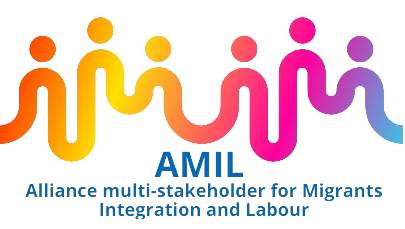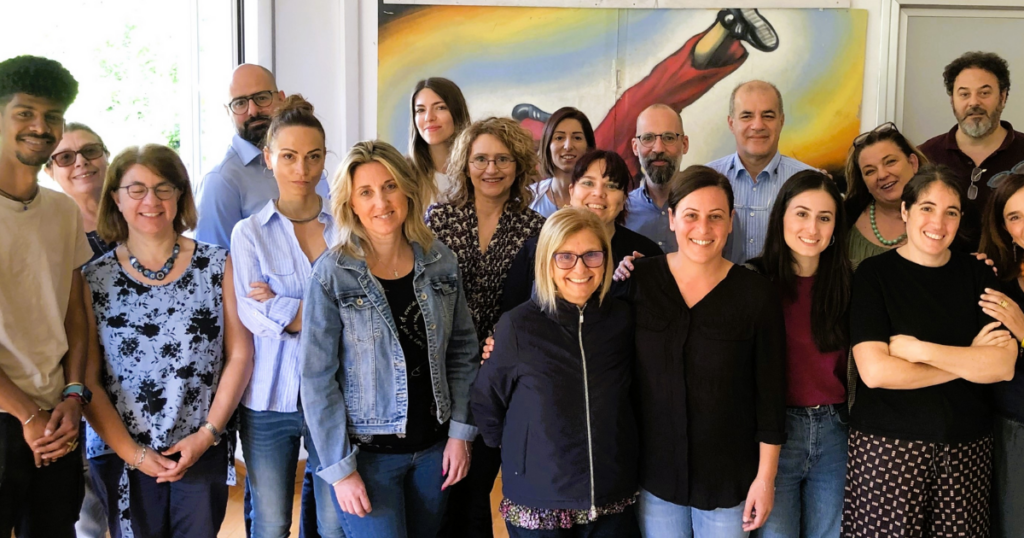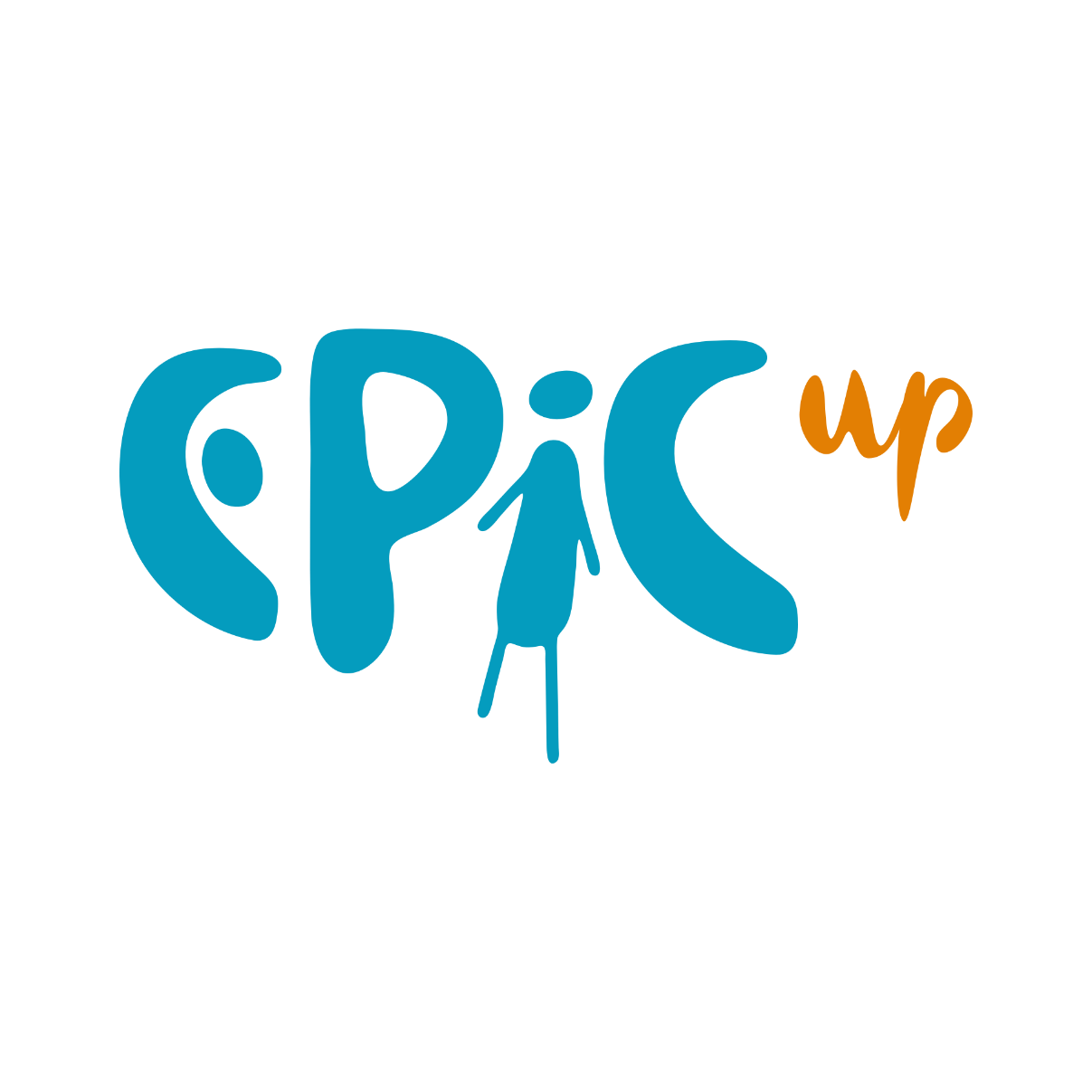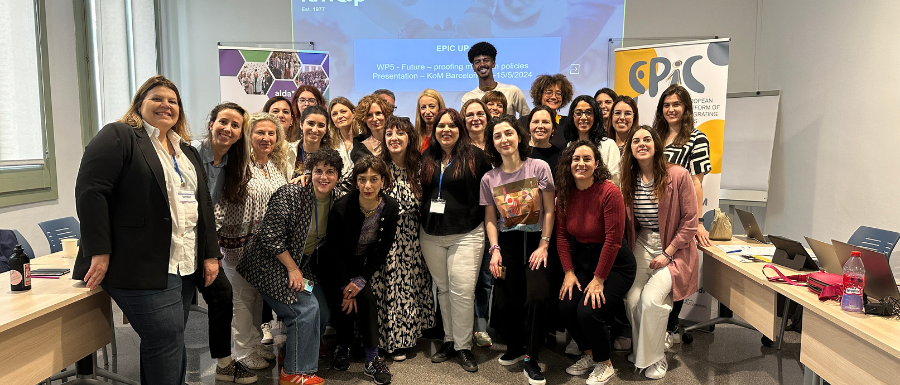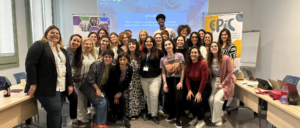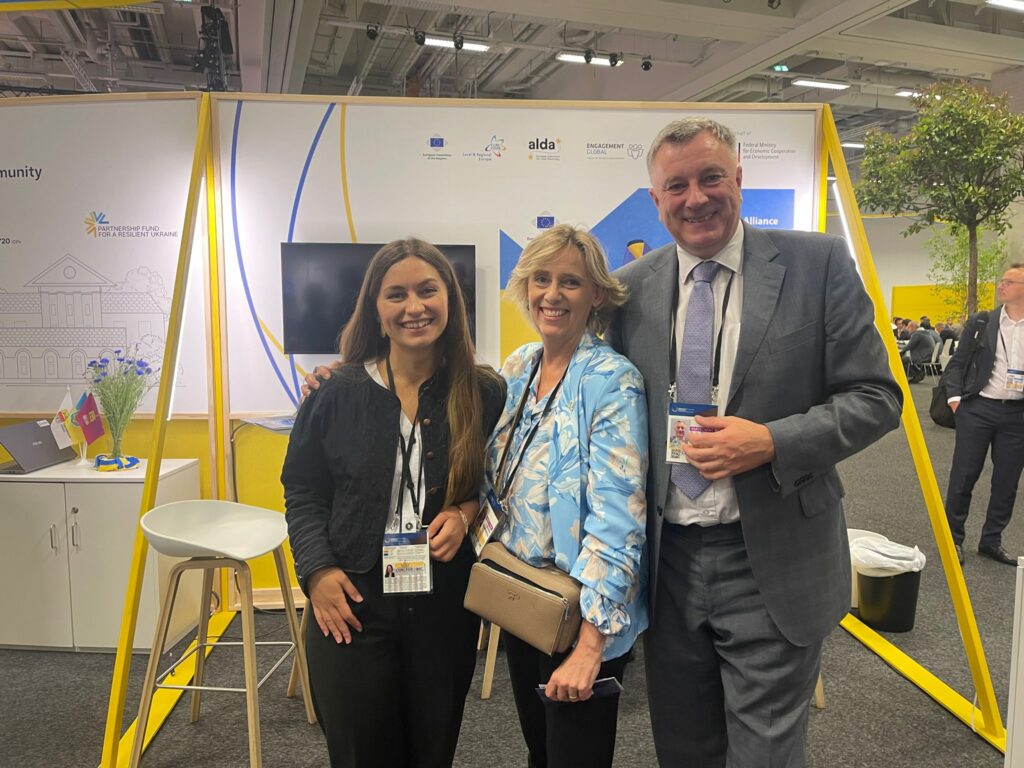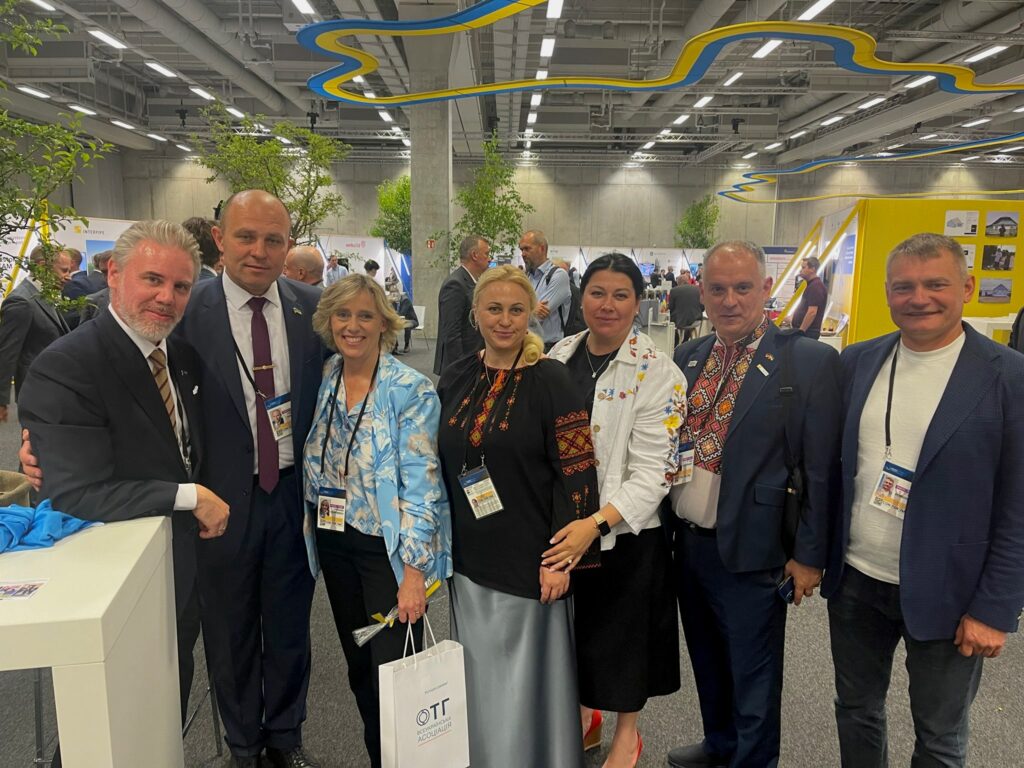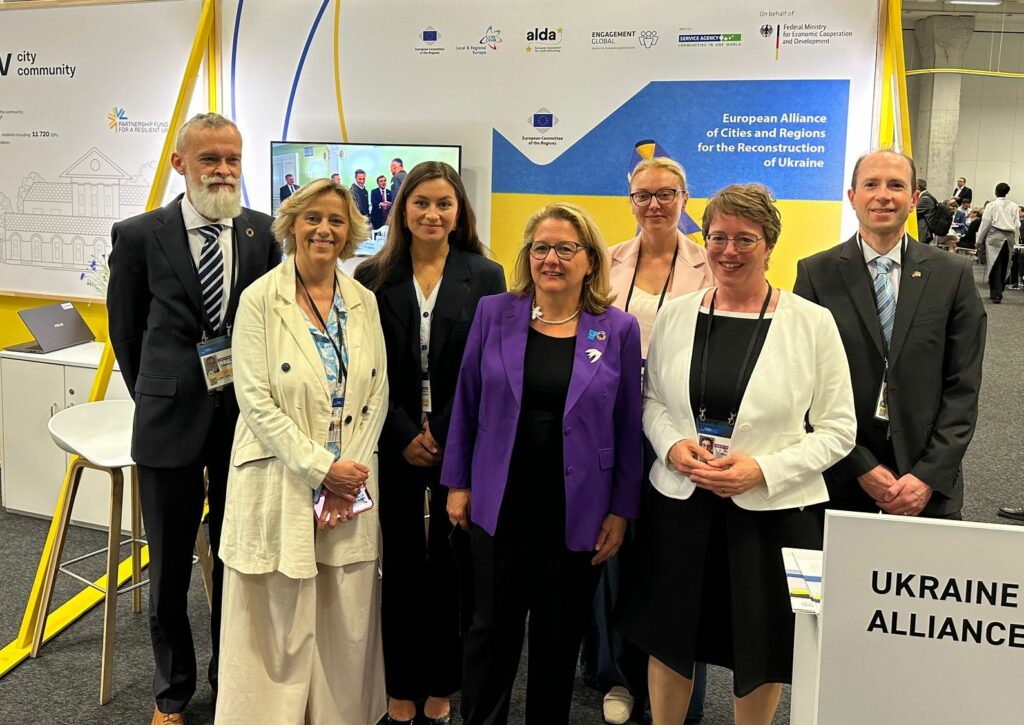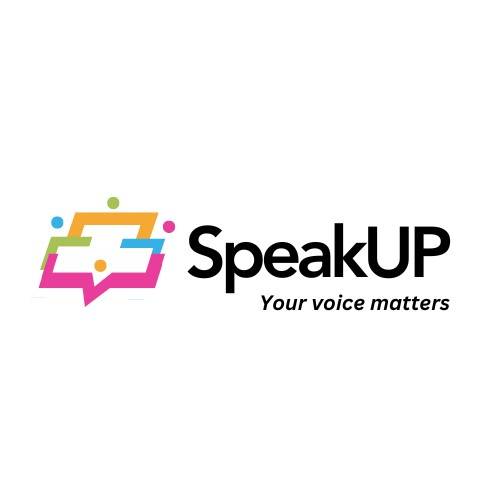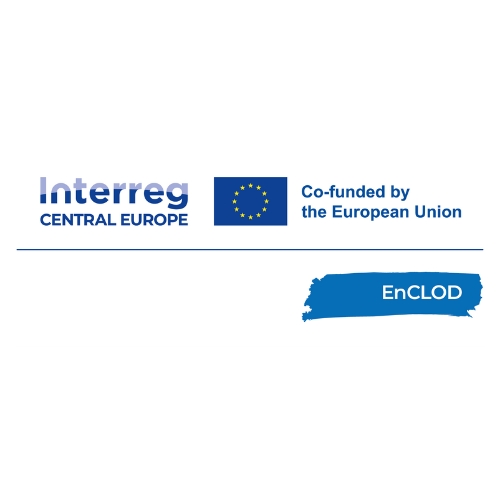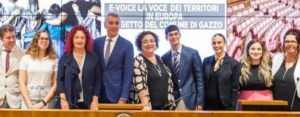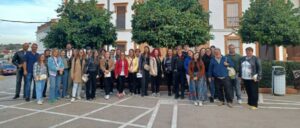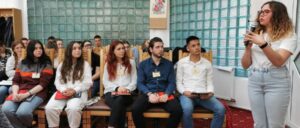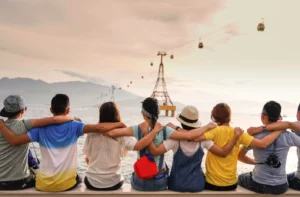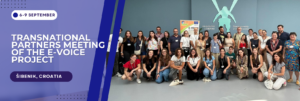In March 2024, ALDA launched a call for proposals to fund ALDA members willing to support impactful initiatives that promote a sense of belonging to the European Union in the year of the EU elections.
In order to promote good governance and citizen participation at the local level in Europe and beyond, ALDA leads a wide range of actions supporting local, national and international stakeholders in achieving their goals in the fields of European integration, decentralisation, human rights, social inclusion, sustainable development, civic initiatives and much more. As its core element, ALDA supports citizens and groups of citizens in their initiatives aimed at improving their local context, building bridges with local authorities in order to make the change real. In this framework, ALDA works through a participatory approach and the method of multilateral decentralised cooperation, always focusing on strong partnerships between local authorities and civil society organisations.
ALDA works with and for local resilient communities, to address the future challenges from a democratic, environmental, social and economic point of view
The call was aimed at supporting local and grass-root initiatives in the field of EU values and policies, in order to promote both a sense of belonging to the EU in view of the 2024 EU elections, and a sense of “local ownership” and engagement in the local community. This way the funded projects were able to pave the way for further activities in this sense and ensure the capitalisation of the results.
The call was addressed to ALDA members based in the EU which presented their own projects focused on increasing public knowledge, awareness and interest about the EU policies, values and strategies.
These organisations will implement different strategies at local level targeting different vulnerable groups in areas such as: education, citizens engagement, health, climate action, gender equality among others.
ALDA received many interesting and qualitative applications. After the evaluation was carried out by an appointed Selection Committee (SeC), 11 organisations from 6 different countries were selected.
These organisations will implement different strategies at local level targeting different vulnerable groups in areas such as: education, citizens engagement, health, climate action, gender equality among others.
These 11 beneficiaries of the regranting programme are:
Name of the project: Forward EU (FEU)
City of implementation: Brussels, Belgium.
The project aims to empower young people and promote active engagement in civic activities by integrating creative methodologies (interactive quizzes, treasure hunts and digital tools), varied events, and inclusive engagement strategies and collaborations with diverse stakeholders.
Name of the project: VISTA: Voices for Integration, Solidarity, and Trust in Action
City of implementation: Naples, Turin, Parma, Italy.
The main objective of the project is to promote participation, integration, solidarity, and trust of young people, including some refugees. The project will also develop tools, key messages, and community initiatives that empower participants to become advocates for positive change, foster meaningful connections within and across their communities, and inspire collective action towards more inclusive and resilient societies, in line with fundamental EU values.
Name of the project: Amplifying Youth Voices in Mental Health at EU level: Advancing Participatory Platforms and Policy Trackers for Actionable Change
City of implementation: Barcelona, Spain.
The project aims to influence policy decisions in the field of mental health at local, national, and European level through workshops, webinars and integrating arts-based methods with digital participation platforms.
Name of the project: I VOTE, WE WIN. Together against inequalities
City of implementation: Brescia, Italy.
The main goal of the project is to promote within the citizens – especially among young and new voters – a sense of belonging to the EU as well as to enhance people’s awareness, engagement and social participation with respect to EU rights and value. To achieve this, a seminar on the functioning of the EU elections and varied public events will be organised.
Name of the project: SARAJEVO – BARCELONA: LEARNING FROM 30 YEARS OF LOCAL COOPERATION
City of implementation: Barcelona, Spain – Sarajevo, Bosnia and Herzegovina
The main goal of the project is to strengthen local democracy and citizen participation, while also facilitating knowledge exchange and cooperation between cities, particularly Sarajevo and Barcelona. This will be achieved through a series of activities (organisation of a book presentation, a photo exhibition and conferences, participation in a campaign and workshop) designed to promote dialogue, reconciliation and civic engagement.
Name of the project: Democratic Action of Refugees in Europe (DARE)
City of implementation: Brussels, Belgium.
The project aims to promote the participation of first time voters with refugee backgrounds, who have recently obtained citizenship in an EU country. The project envisions a webinar to raise awareness about EU elections; workshops to co-create messages to encourage participation in the elections; a meeting between newly elected progressive Members European Parliament (MEPs) and a small group of community leaders with refugee background; and a closing webinar.
Name of the project: EmpowerEU: Youth Multipliers for Democracy
City of implementation: Lisbon, Portugal.
The project seeks to actively engage young people in discussions regarding the EU impact on their lives, raising awareness of EU decision-making processes, and encouraging their participation in shaping Europe’s future, especially concerning EU elections. To achieve this, the project will implement an intensive bootcamp and academy, providing participants with in-depth knowledge and skills related to EU policies, institutions, and democratic processes.
Name of the project: “Empowering European Citizens” Seminar
City of implementation: Nocera Umbra (PG), Italy.
The main goal of the project is to empower young European citizens by fostering their knowledge, understanding, and engagement with the European Union. The Seminar consists of a totally free week of study-vacation, which combines lectures and group discussion with recreational activities.
Name of the project: Your Voice, Your Europe!
Country of implementation: Spain, Slovenia, Italy, France, Germany, Belgium.
The project aims to connect and engage youth and other groups from various countries, with different social backgrounds, and from different local environments, to raise awareness about the importance of European Parliament elections. The methodology will integrate artistic expression (organisation and implementation of 12 street art intervention), social media activities, interactive discussions, cross-cultural exchange, and reflections.
Name of the project: TAKE A STEP! Sustainable Territory & European Participation
City of implementation: Vicenza, Italy.
The main goal of the project is to promote the education, empowerment and participation of the target groups (broad citizenship, including youths and vulnerable groups) concerning the environmental crisis and the climate change adaptation and mitigation. The activities involve round tables with local and non-local experts and activists, theatre and music performances.
Name of the project: ENGAGE EU (Empowering New Generations through Artistic Group Experiences Europe)
City of implementation: Marseille, France.
The project will start with “L’Europe à la Barre” which is an immersive theatrical production that plunges the audience into a fictitious trial of the European Union, inviting the public to judge the EU itself. Through lively debates, the play stimulates deep reflection on the future of Europe, and urges the participants to embrace their European citizenship. Then, the project continues with the “ENGAGE” workshop, an initiative aimed at promoting creative reflection on democracy and its integration into the daily lives of participants.
